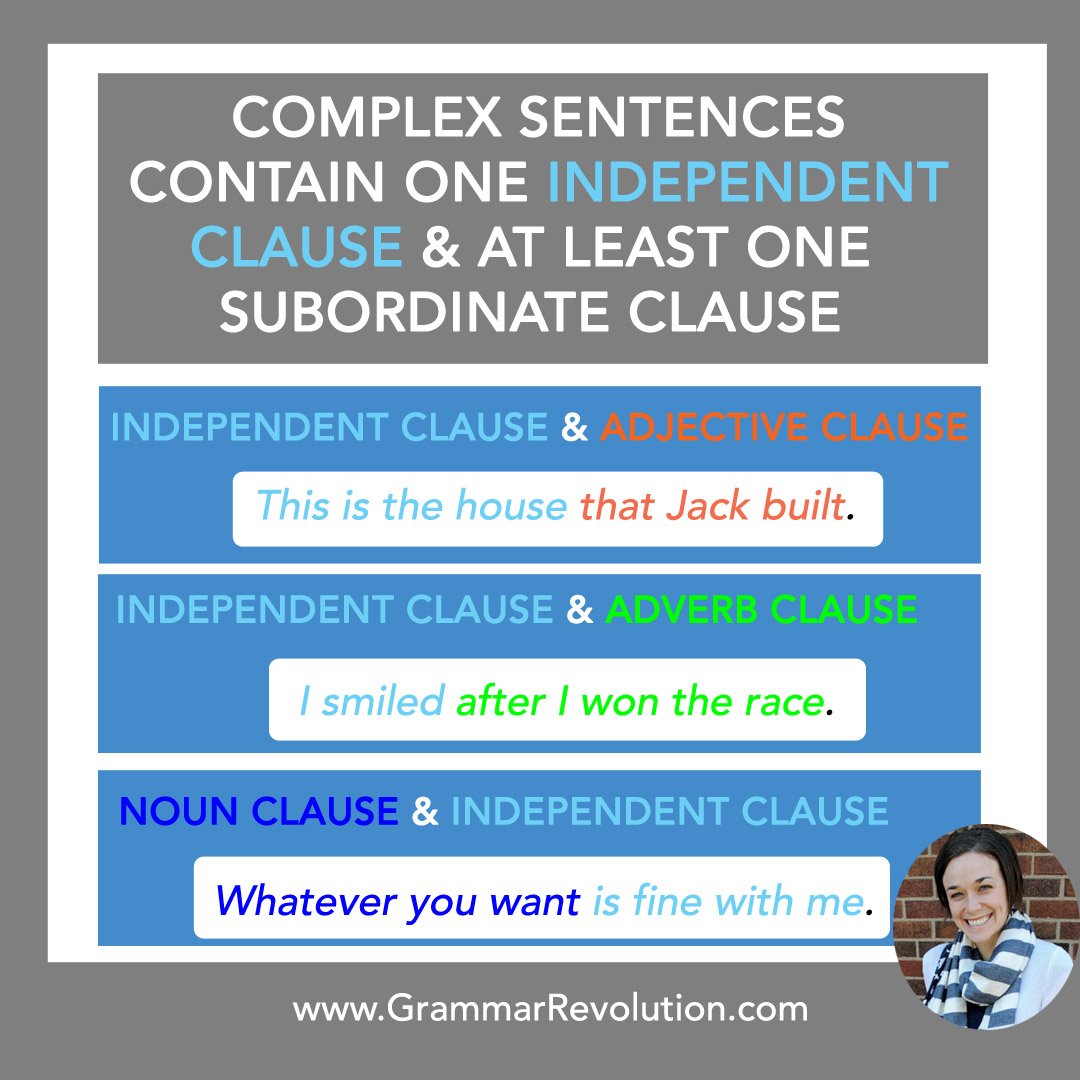

That definition won't help you much if you don't understand clauses. Clauses are groups of words that contain both a subject and a verb. There are two types: independent and dependent.
Let's explore these in a little more detail so that you can better understand complex sentences. Here we go!
Independent clauses are just what they sounds like - they are clauses that are independent! :) They are groups of words that contain both a subject and a verb, and they can stand alone as complete thoughts. You can have just one independent clause and call it a sentence.
This is the house.
I will go for a walk.
When a sentence is made of just one independent clause like this, it's called a simple sentence.
A subordinate clause (dependent clause) is also a group of words that contains both a subject and a verb, but this kind of clause cannot stand alone as a complete thought.
that Jack built
since the weather is so beautiful
These guys need to be linked to an independent clause in order to make sense. When we do this, we are left with a complex sentence!
This is the house that Jack built
Since the weather is so beautiful, I will go for a walk.
You've already done a great job learning about complex sentences. Give yourself a pat on the back. If you'd like to learn a little bit more about how they can differ from each other, keep reading!
Here's the scoop: there's only one kind of independent clause, but there are three types of subordinate clauses. The really funny thing about subordinate clauses is that the whole clause comes together to do the job of one part of speech.
The three types of subordinating clauses, then, are those that act as adjectives, adverbs, and nouns.
Let's look at some examples. Remember that all of these example sentences are complex because they contain an independent clause and a dependent clause.
That means that they modify nouns or pronouns. In the diagram below, the independent clause is in black and the dependent adjective clause is in blue. Notice that the dependent adjective clause is connected to the noun house in the independent clause. Adjectives modify nouns, and house is a noun.
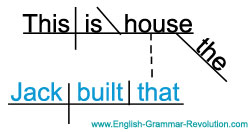
This is the house that Jack built.
That means that they modify verbs, adjectives, or other adverbs. They are joined to independent clauses with subordinating conjunctions. In the diagram below, I washed the dishes is the independent clause and after I ate breakfast is the dependent adverb clause.
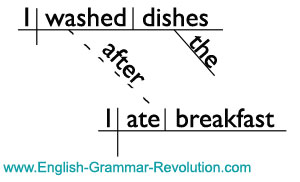
I washed the dishes after I ate breakfast.
These can do any of the noun jobs (subject, direct object, object of a preposition. ). They are introduced by wh- words or words that you can call noun clause markers.
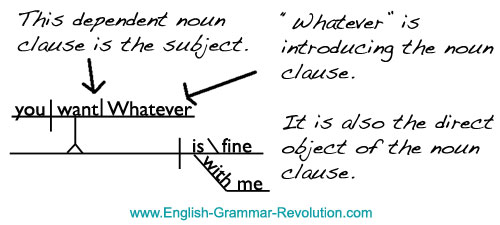
Whatever you want is fine with me.
If you'd like to teach or learn grammar the easy way—with sentence diagrams—check out our Get Smart Grammar Program.
It starts from the very beginning and teaches you grammar and sentence diagramming in easy, bite-size lessons.
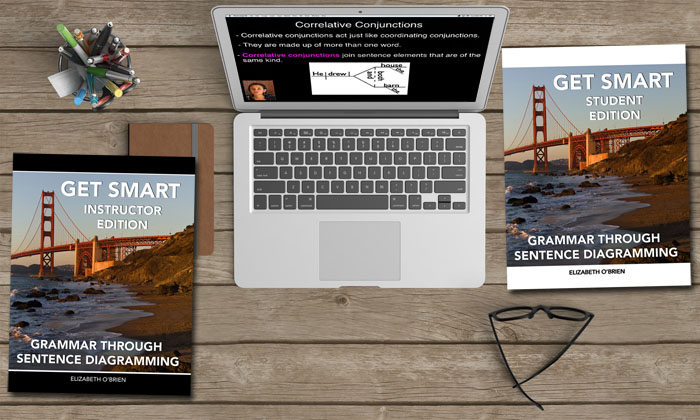

Hello! I'm Elizabeth O'Brien, and my goal is to get you jazzed about grammar.
I look forward to your fun sentences for diagramming, and I appreciate your easy-to-follow explanations. Your passion for grammar has made my job as an instructor more fun and easy. Now, our whole class is catching the "grammar is fun" bug.- Andrea, Teacher
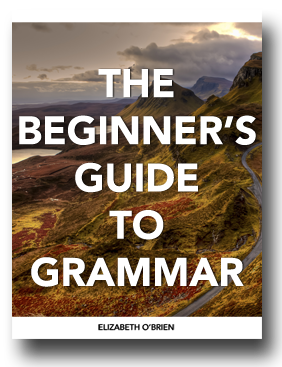
Our Free Guide Gives You A Fun Way
To Teach And Learn The Basics v
Elizabeth O'Brien is the creator of Grammar Revolution.
Her lessons are guaranteed to give you more confidence in your communication skills and make you smile. :)